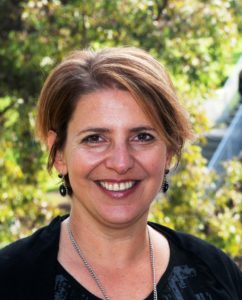
Education and harm minimisation strategies such as pill testing should be considered as a means of reducing the most risky behaviour of illicit drug use at large music and youth festivals, a Flinders University public health and safety expert says.
“Handled well, such measures could be more effective than zero tolerance and conventional hard-line approaches to illicit drug-taking,” says Associate Professor Alison Hutton, from the Torrens Resilience Institute at Flinders School of Nursing and Midwifery.
Highlighting Australian successes in providing more safe conditions and support services for teenagers at end-of-year Schoolies’ festivals, she says harm minimisation strategies complement the Federal Government’s new national drug and alcohol plan that shifts the focus from policing to prevention.
“Instead of driving discussions about illicit drug-taking underground, harm minimisation strategies create an avenue to start a conversation with young people about what they are taking and why,” Associate Professor Hutton says.
“Health experts can then pass on vital information about what is contained in the drug and the possible risk to their health and wellbeing, thus giving young people a chance to make a more informed choice about their own actions.
“We should look to harm minimisation and provide an environment and practices that support young people should they need to withdraw or avoid risky or harmful situations.”
Recent events have tragically shown that young people who attend outdoor music festivals to have fun and escape from their every-day life do not always have their own health and safety at the forefront of this experience.
“Harm minimisation could pave the way for the development of strategies that may lead to a safer and more supportive environment where drug-related harm for young people is reduced,” she says, pointing to recent findings published by British Columbia health service ANKORS.
“ANKORS became the coordinator of pill-testing services and other support services at an electronic dance festival and the evidence suggests that it was a contributing factor to youth changing their attitudes and behaviour toward illicit drug use during the festival.
In 2013, ANKORS surveyed 182 festival goers about their services and the majority of these people (76.9%) used the pill-testing service.
The results of each different pill tested was displayed on a white board so that information could be safely shared with others about the drug(s) contained in the pill.
People were asked what they did when they found out information about the drug, and of the 42 responses, half said that they would get rid of the drug while another 17 people said they would give it back.
“While this is an isolated instance, it is worth noting this is one example of an innovative approach which seems to have been successful, although it is very challenging to implement and there is a need for more extensive evidence of the success of such an approach,” says Associate Professor Hutton
“It’s just one example of harm minimisation tactics, compared to conventional hard-line approaches, that can be used to tackle illicit drug taking.
“Health promotion can pave the way for the development of strategies that can lead to a safer and more supportive environment in which drug-related harm for young people is minimised.
“Event organisers, community members, and federal, state and local government policy-makers need to invest the time necessary to develop and strengthen prevention strategies to reduce the social and economic cost associated with illegal drug-taking.”
With the increasing popularity of mass gathering events in Australia, these environments are becoming a prominent public health issue, Associate Professor Hutton says.
Types of public health policies would include those that relate to the risk assessment of the health and safety of the participants, as well as those who are organising and working at the event.
Associate Professor Alison Hutton, based in the School of Nursing and Midwifery at Flinders University, is President of the Association for the Welfare of Children in Health Care, an adjunct scholar at the John Hopkins School of Nursing and Curtin University School of Nursing, and is currently involved in United Nations and World Health Organisation research on safety at mass gatherings.

